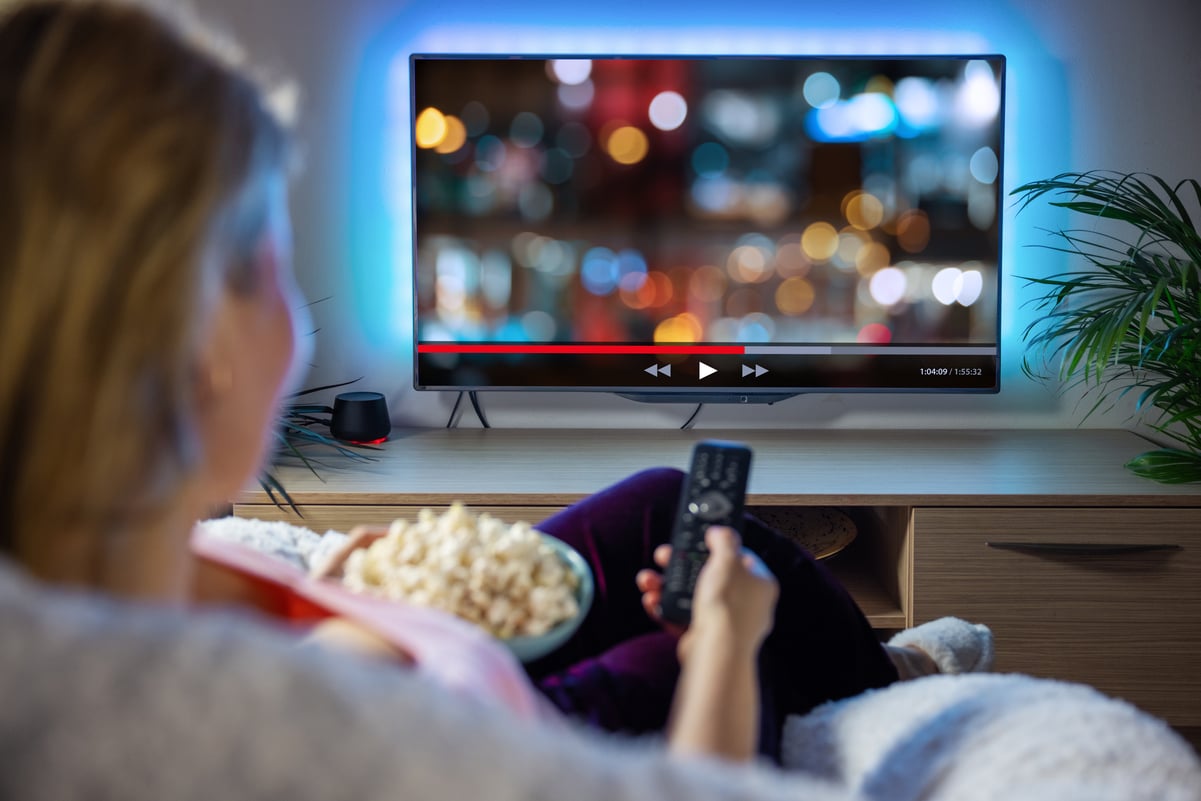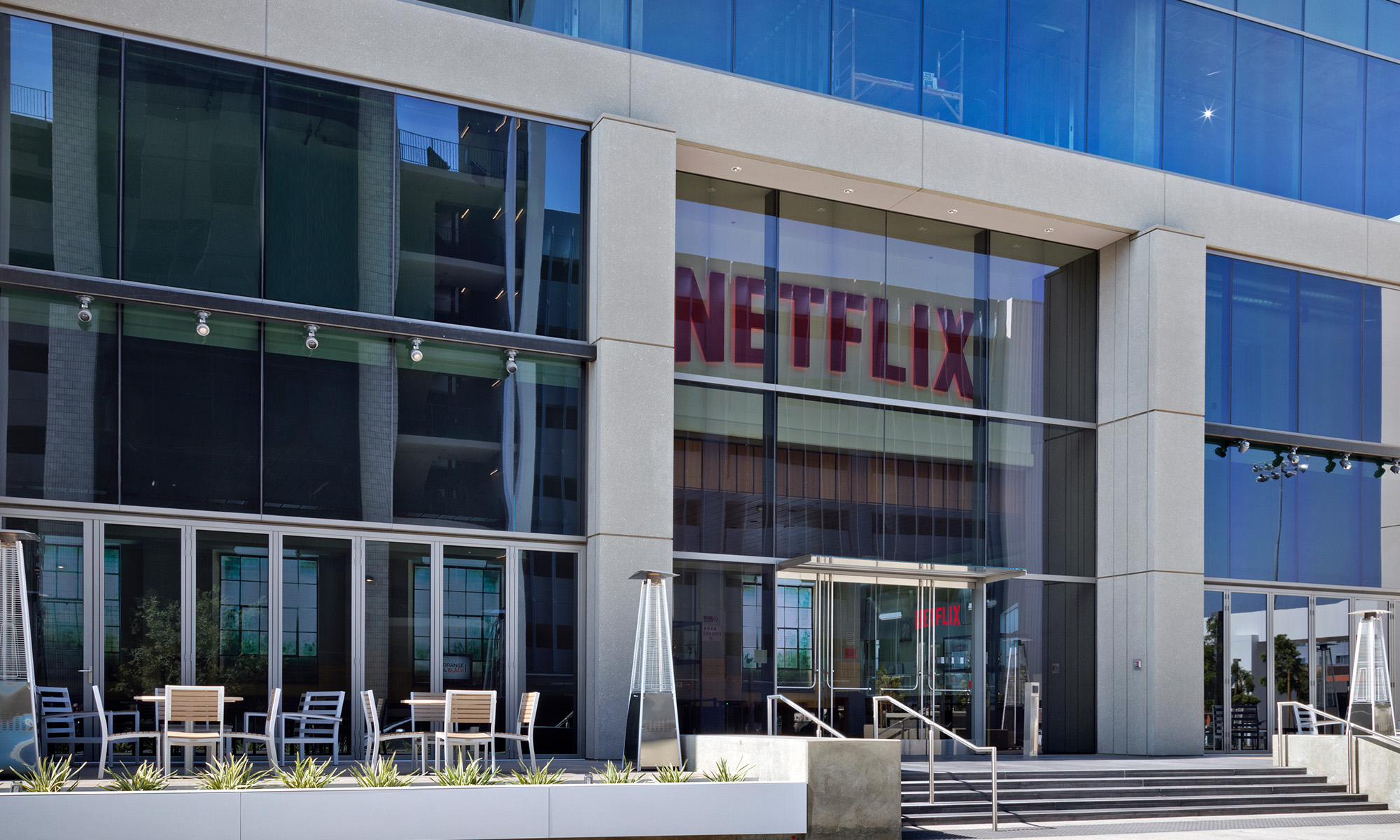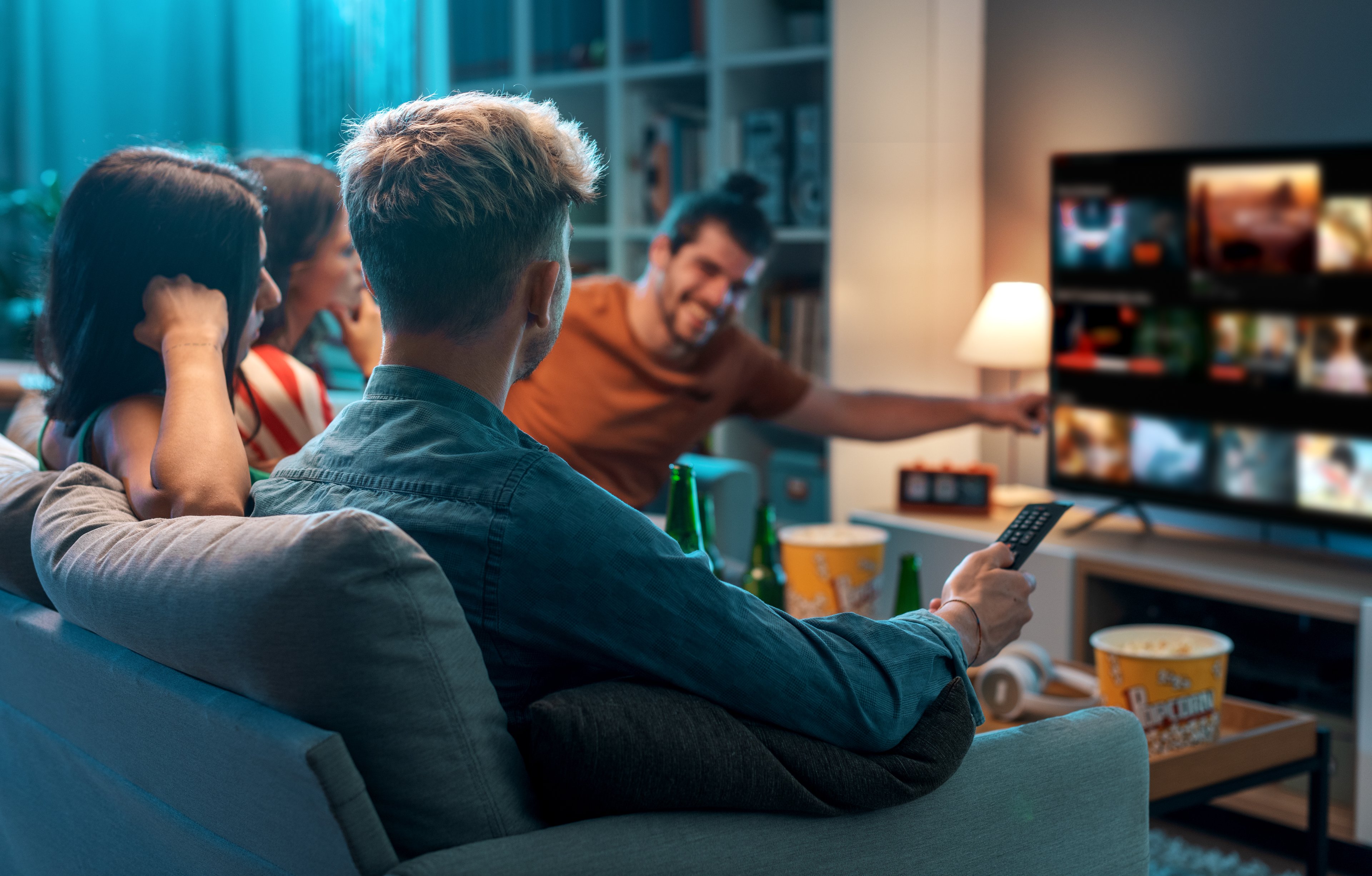
Image source: Netflix.
Fresh off an earnings-powered 35% share price jump in April, Netflix (NFLX 0.56%) CEO Reed Hastings took the stage at the re:publica 15 media conference in Berlin last week.
"He wants to do some points he's never done before -- lucky us!" said event host Alina Fichter. Hastings did not disappoint.
Here are five of the freshest insights Hastings shared on that German stage. For those playing along at home, you can find the entire talk embedded at the end of this article.
Let's start on a lighthearted note.
Content rumors
An audience member wanted a scoop on one of the many content production rumors that always surround Netflix. In response, Hastings gently reminded everyone that the rumor mill shouldn't be trusted:
There were some rumors that we were going to do a show based on that big Nintendo game, Zelda, and what happens in Hollywood is, if you wanna sell a show you plant a rumor that Netflix is gonna do it. Because that gets all the other people to be serious about it.
So you have to discount a lot about what you read and remember that the agents who sell shows are always planting these things to try to build attention.

Netflix CEO Reed Hastings, explaining his company's recent history at the re: publica 15 conference. Image source: re: publica 15.
Lessons learned from Qwikster
Hastings brought up the Qwikster debacle of 2011, using the event to explain how Netflix likes to learn from its mistakes.
We included a sixty percent price increase from ten dollars to $16 in the middle -- 2011 -- of the worst recession in a hundred years. So really, it was a catastrophically bad decision and it almost killed us. And in hindsight we realized, this same bravery that allows us to be innovative is the bravery that almost killed us that time.
And these things go hand in hand and we have to realize that every now and then we're gonna have a big error. We're gonna have a big mistake but we can't hold back from taking risk.
Later on, the subject of risk came up again.
Hastings pointed to the upcoming Sense8 series by the Wachowski siblings and last fall's BoJack Horseman as examples of risky but innovative shows. One is a mind-bending thriller in a format never tried before; the other adds adult humor to a seemingly harmless cartoon, resulting in another new style that can't follow in the footsteps of any proven success stories.
Hastings wants to take more of these leap-in-the-dark chances -- and maybe he's not trying hard enough yet:
I would say our best work is still coming out, and every year we want to do more and more incredible work. Now, some of it should fail because otherwise we're not trying hard enough. But so far, every show has been great for some audience and so we've taken them into season two.
House of Cards: the one that nearly got away
Almost synonymous with Netflix originals, it's easy to take Kevin Spacey vehicle House of Cards for granted. But Hastings recalls the nerves in the room before this expensive, unproven experiment was nailed down.
The political drama and its six Emmy awards very nearly slipped through Hastings' fingers. This big winner wasn't always a sure thing:
Through [the early years] we realized the only way to have control of the shows to be able to globally license is to produce the shows ourself.
My partner and colleague Ted Sarandos, who runs our content group, he read the script for House of Cards four years ago and we were in a bidding war three years ago with HBO for that title. We paid way more than anybody was supposed to pay for that title and we had to hope that it's gonna be epic.
And indeed, it turned out to be the best decision we ever made.
... House of Cards has worked out so well, but at the time it was over $100 million. It was, you know, a large part of our budget. We had never done original content before. We debated it back and forth, we almost didn't do it. We thought, you know, what if we can't pay for this because the business doesn't grow?
At the time that was an intense debate and we almost didn't do it. So that was the scariest moment.
Keeping it simple
The battle-tested KISS principle holds a ton of power at the Netflix headquarters.
The company is ripping a cherished page out of the Apple playbook. Netflix won't try to do everything for everybody, with potentially mediocre results. Instead, Hastings chooses to focus on doing a few things very well. The strategy has worked wonders for Apple over the past 15 years, and Netflix is following the same path more strictly than you might think.
In short, excellence comes from keeping a tight focus, turning down good ideas because they wouldn't be great. That has to be a tough lesson to learn.
What we're figuring out is that people really love simplicity.
If you look at the problems with large software like Microsoft Office, every feature in Microsoft Office, somebody wanted it sometime. But what happens is over ten or twenty years that the thing gets so huge, it's overwhelming. So a great product design is to figure out what are the important cases for the long term, and to have the discipline to say no to some things that are good.
It's easy to say no to things that are bad but great product design is saying no to some things that are good.
And we look at it and say, the complexity of downloading as you have to do it in advance, you have to store the file, you have expiration, you have all this complexity, and in the long term the networks are gonna get fast enough that streaming works everywhere. So that's why we're betting forward in that dimension even though it is a little disappointing in the short term.

Reed Hastings, left, and Alina Fichter, right, discussing Netflilx's business at the re: publica 15 conference. Image source: re: publica 15.
Hastings' vision for the next 20 years of TV history
That brings us to the fifth and final point on today's schedule: Where Reed Hastings sees the TV industry moving over the next couple of decades.
This is "just a little preview" of the Netflix CEO's vision, but still meaty enough for a big bite. I'll even divide it into two parts, to help with digestion:
Let's think about linear TV. Developed around 1930, got big in 1950 in black and white, and then in the sixties and seventies in color. The eighties and nineties brought cable or satellite in addition to broadcast television. But it's all linear TV.
A show is on at 8 o'clock -- that's not when you wanna watch.
And we will come to see that linear TV declines every year for the next twenty years, and that Internet TV rises every year for the next twenty years, a lot like mobile phone over the fixed-line telephone.
The television screen will look like a large iPad. Take an iPad and stretch it out two meters wide. It'll be like that, where there's all different applications, all different options, all competing for your time and attention and improving. The amount of innovation over the next ten years in terms of Internet video will be astounding.
It's 2015. Ten years ago, 2005, there was no iPhone. So the entire smartphone revolution has happened today just in 10 years so now we have to wonder, what about the next 10 years?
What will that bring in hardware innovation? In virtual reality, incredible immersive screens and screens in the home, screens in your pocket. The Internet will get so much faster -- fiber to every household that has electricity. All of this will happen over the next ten years, propelling and driving Internet video.
In Hastings' view, scheduled programming is slowly going away in favor of on-demand options. Netflix will try to lead the charge, but still leaves plenty of room for other specialists to grab certain niche markets.
The hardware will get better, faster, cheaper. If you thought the last decade was interesting, what with the smartphone boom and digital video explosion, you won't believe the next 10 years. Incredibly fast broadband everywhere, delivering content in formats we have yet to dream of. Video entertainment is about to get way more entertaining.
And here's how:
The advantages with Internet TV are that you can watch it when you want, you can watch it on any screen, it's personalized, it's customizable, you can watch it with any combination of subtitles and dubbing that you want.
It seems so simple, and yet most current linear networks think the Internet is a fad that might hopefully go away. In fact what you all see is that the Internet is going to become the basis for all social interaction, we're all building applications on top of that Internet and so year by year linear TV will shrink -- even with sports.
So in the next world cup, many of you will have 4K televisions and you wanna watch the World Cup in 4K but broadcast and cable will not be able to provide you a 4K signal. Instead it will come over the Internet and much of the world will watch the World Cup in incredible video quality over the Internet.
Now, I understand if you want to toss a whole bag of salt on some of these claims. In particular, of course Hastings sees all social interaction moving online. As a Facebook (FB +0.79%) director since 2011, he almost has to hold that view. Hastings may be right about it, and he may be wrong. But the larger point still stands, that video entertainment is becoming more personal as it moves deeper into online media.
Let's be clear: I had to whittle my original list of nearly 20 compelling takeaways down to these five gems, leaving a ton of important angles uncovered. So if you still want more when we've covered the top five points together, feel free to dive right into the video.









